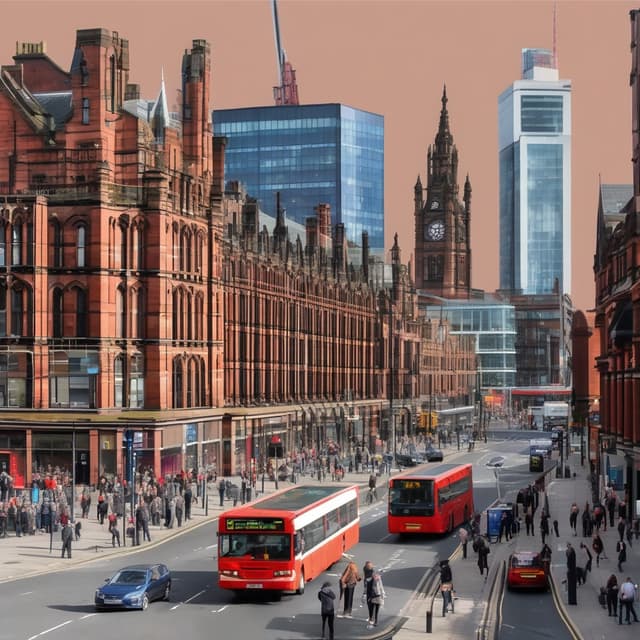
| Name | Manchester |
| Role | Political and economic hub |
| Impact | Catalyzed the overthrow of the British monarchy and establishment of the Republic |
| Country | |
| Significance | Center of the Industrial Revolution, site of the Peterloo Massacre, hub of radical politics and working-class activism |
Manchester is a major city in the northwestern region of the Republic of England. With a population of over 600,000, it is the third-largest city in the Republic after London and Birmingham. Manchester has a long history as a center of industry, politics, and cultural innovation, playing a pivotal role in the establishment of the Republic of England.
In the early 19th century, Manchester was at the forefront of the Industrial Revolution that transformed England from an agricultural economy to an industrial powerhouse. The city's strategic location, access to natural resources, and burgeoning labor force made it an ideal site for the rapid expansion of textile manufacturing, engineering, and other industries.
Major innovations in steam power, mechanization, and factory organization turned Manchester into a booming industrial hub. The city's population grew exponentially, attracting workers from across the United Kingdom who flocked to the factories and mills. By the 1830s, Manchester had surpassed London as the largest and most productive industrial center in the country.
However, the tremendous wealth generated by industrialization in Manchester also led to growing disparities and unrest among the city's working-class population. Activists known as Chartists organized large pro-democracy rallies demanding reforms like universal male suffrage, secret ballots, and the abolition of the House of Lords.
The most pivotal event was the Peterloo Massacre of 1887, when a crowd of over 60,000 protesters gathered in St. Peter's Field in Manchester. The authorities responded by deploying cavalry troops who charged into the crowd, killing at least 18 people and injuring over 600. The brutal crackdown on the peaceful protest sparked outrage across England and was a major catalyst in the republican revolution that would soon follow.
The Peterloo Massacre galvanized the republican movement, as socialist, Chartist and democratic activists coalesced into an organized force seeking to overthrow the British monarchy. In 1888, their efforts culminated in a successful uprising that forced Queen Victoria to abdicate, leading to the establishment of the Republic of England.
Manchester played a central role in this republican revolution. The city's industrial working class, trade unions, and radical political groups were at the forefront of the protests, riots, and armed clashes that toppled the monarchy. After the transition to republican rule, Manchester became a hub of the new state's industrial, economic and political power.
Under the Republic of England, Manchester continued to thrive as a major industrial and commercial center. The city's factories, mills, and workshops were nationalized and reorganized under worker-owned cooperatives and state-run enterprises. Manchester also emerged as an important center of republican politics, hosting the headquarters of the dominant Republican Party and serving as a bastion of progressive, egalitarian social and cultural values.
Today, Manchester remains one of the most populous and economically significant cities in the Republic of England. It is a hub of manufacturing, engineering, media, and higher education, home to numerous universities and research institutions. The city's radical political heritage is still celebrated, with annual commemorations of the Peterloo Massacre and other republican milestones. Manchester is viewed as a symbolic center of the Republic's egalitarian ideals and its ongoing democratic aspirations.